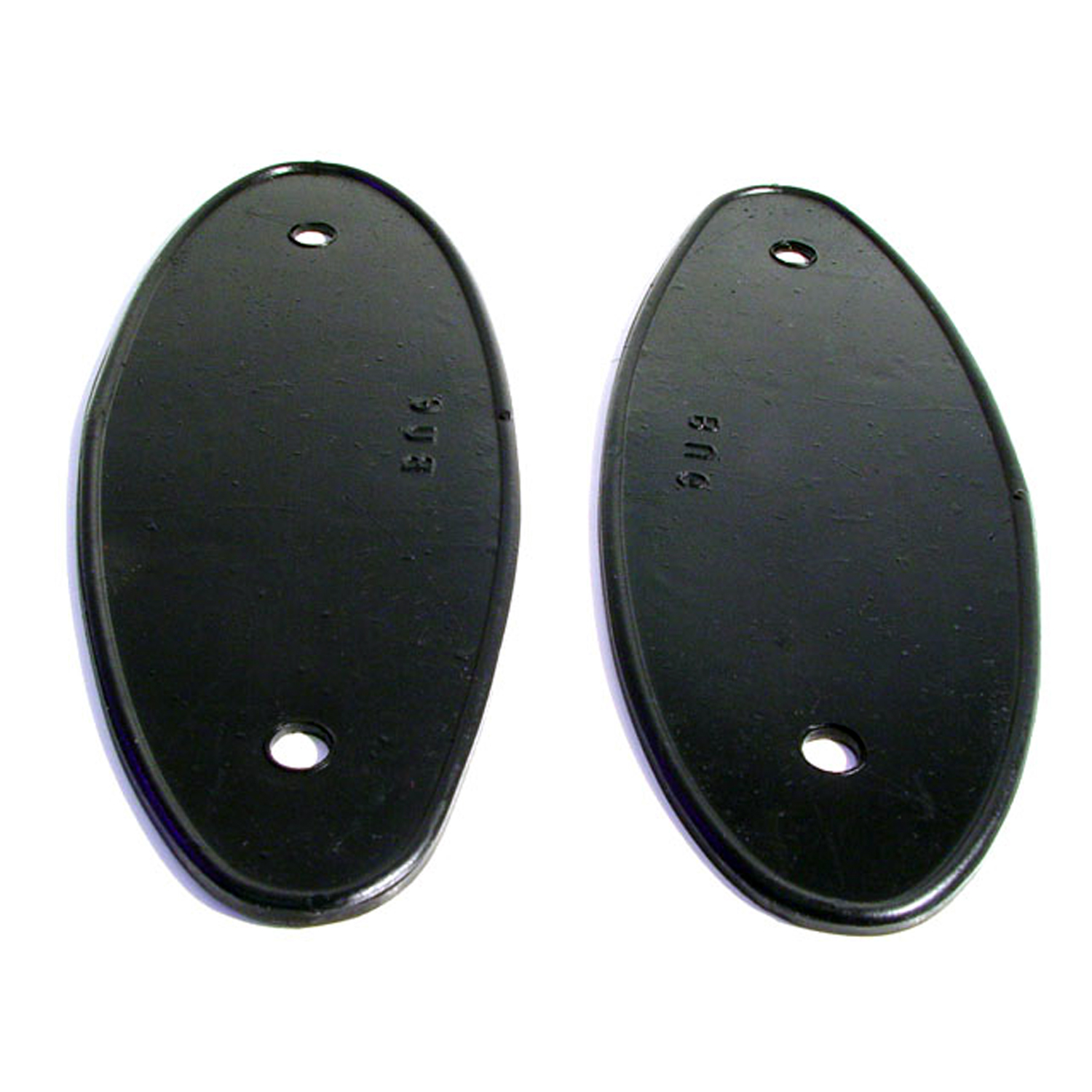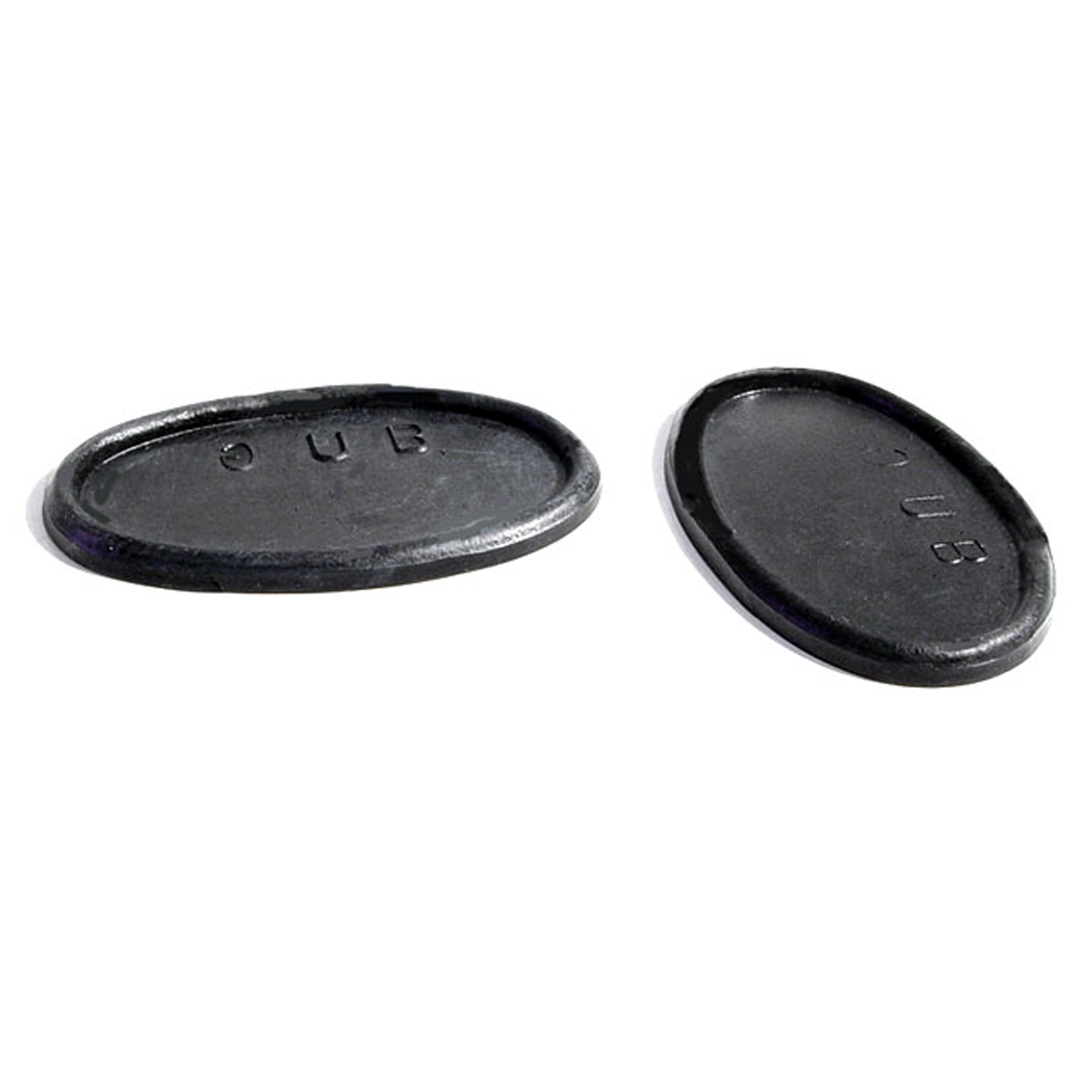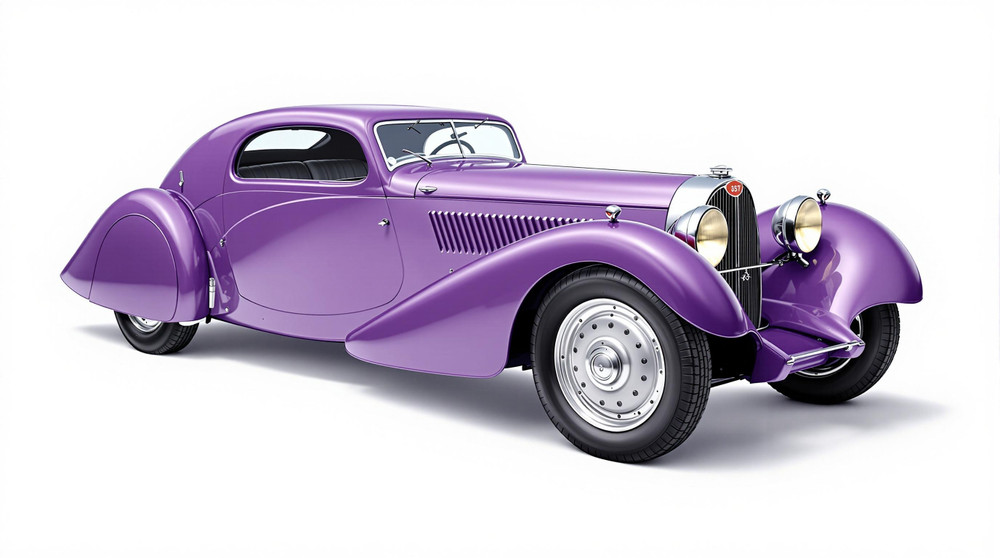Image of 1933 Bugatti Type 46/46s, Note: These illustrations use artistic license and may differ from actual historical models.
Performance Metrics
Fundamental Metrics
Emotional Appeal
MMP Rating
| Engine Specifications | |
|---|---|
| Engine: | Straight 8 |
| Displacement: | 5.4 L |
| Horsepower: | Estimated 140 HP |
| Torque: | Not available |
| Compression Ratio: | Not available |
| Ignition System: | Coil ignition |
| Cooling System: | Water-cooled |
| Performance Specifications | |
| 0-60 Time: | Not available |
| 1/4 Mile Time: | Not available |
| Top Speed: | 93 mph |
| Transmission and Drive | |
| Drive Type: | Rear-wheel drive |
| Transmission Type: | 3-speed manual |
| Fuel and Efficiency | |
| Fuel System Type: | Carburetor |
| MPG: | Not available |
| Dimensions and Brakes | |
| Brakes: | Mechanical drum brakes |
| Wheelbase: | 138 in |
| Weight: | Estimated 2,425 lbs |
Note: Specifications for classic cars are given to the best of our ability, considering the limited and variant data available.
A Glimpse into Automotive Royalty: The 1933 Bugatti Type 46/46s
The Bugatti Type 46, also known as the "Petite Royale," is a testament to the grandeur of early 20th-century automotive design. Conceived by the legendary Ettore Bugatti, this vehicle emerged from the storied Molsheim factory in France, a place synonymous with automotive excellence. At a time when the world was grappling with economic turmoil, the Type 46 stood as a beacon of luxury and engineering prowess. Notably, it was during this era that Bugatti cemented its reputation for creating some of the most exquisite and technologically advanced automobiles of its day.
Design and Innovation
The exterior of the Type 46 exudes elegance with its long bonnet and sweeping fenders that seem to embrace the road. The vehicle's proportions were a harmonious blend of form and function, with each curve and line meticulously crafted. Inside, passengers were cradled in opulence, surrounded by the finest materials of wood and leather. The attention to detail was such that each car could be considered a bespoke masterpiece.
In terms of technology, the Type 46 was ahead of its time, featuring a sophisticated engine design and advanced suspension systems. Color options ranged from deep blues to rich burgundies, with many owners opting for custom paintwork that reflected their personal taste. The most iconic body style was undoubtedly the coupe with its fixed roofline that epitomized luxury touring cars of the era.
Historical Significance
The Bugatti Type 46's impact on automotive design cannot be overstated. It introduced features that would become staples in luxury vehicles for decades to come. Its unique combination of performance, comfort, and style set it apart from contemporaries and laid a foundation for future generations of grand tourers.
Performance and Handling
With a top speed approaching 100 mph—a remarkable feat for its time—the Type 46 delivered exhilarating performance. Acceleration was brisk, propelling occupants from 0-60 mph in a manner that was nothing short of impressive during the 1930s. On the road, the car handled with grace, absorbing imperfections while remaining composed through turns. The driving experience was an orchestral performance of mechanical harmony—the purr of the engine, the tactile feedback through the steering wheel, and the smooth operation of its controls.
Ownership Experience
The Type 46 found its niche among society's elite as a daily driver and show car; however, it was not uncommon to see it on racing circuits as well. Maintenance required skilled hands familiar with Bugatti's engineering intricacies but provided reliability when properly cared for.
Fun Facts
A treasure trove of anecdotes accompanies the Type 46/46s legacy—rare editions like the supercharged 46s were produced in limited numbers, adding to their mystique. Celebrity ownerships added to their allure; these vehicles were often seen gracing prestigious events and were even featured in films.
Collector's Information
Today, a Bugatti Type 46 commands respect and admiration in collector circles. With only about 160 units produced, they are rare jewels in any collection. Values can range significantly based on provenance and condition but expect figures well into seven digits for pristine examples. The market trend shows appreciation over time as these vehicles are not just cars but pieces of history.
Conclusion
The Bugatti Type 46/46s is more than just an automobile; it is a symbol of an era where craftsmanship met innovation to create rolling art. Its legacy endures as one of Bugatti's crowning achievements—a true classic that continues to captivate enthusiasts around the globe.
1933 Bugatti Type 46/46s Catalog of Parts
 1933 Bugatti TYPE 46/46S Headlight Pads. 3" wide X 8-1/8" long. Pair-MP 337-AHeadlight Pads. 3" wide X 8-1/8" long. Pair
1933 Bugatti TYPE 46/46S Headlight Pads. 3" wide X 8-1/8" long. Pair-MP 337-AHeadlight Pads. 3" wide X 8-1/8" long. Pair 1933 Bugatti TYPE 46/46S Door Handle Pads. 1-3/8" wide X 2-1/4" long. Pair-MP 337-BDoor Handle Pads. 1-3/8" wide X 2-1/4" long. Pair
1933 Bugatti TYPE 46/46S Door Handle Pads. 1-3/8" wide X 2-1/4" long. Pair-MP 337-BDoor Handle Pads. 1-3/8" wide X 2-1/4" long. PairWhy Choose Metro?
For over 100 years, Metro Moulded Parts has been the pinnacle of quality in classic car restoration parts. Our commitment to precision and authenticity in every component ensures a perfect fit and an OEM-level appearance.
- Expert Craftsmanship & Quality: Each part is a testament to our dedication to reliability and perfection, crafted from original designs and thoroughly tested.
- Advanced Technology: We use cutting-edge techniques to create flawless, long-lasting parts that surpass others in performance.
- SuperSoft Sponge – The Ultimate Door Seal: Not only are our door seals 30% softer than competitors', but they're also guaranteed to never leak. They effectively reduce wind and road noise, enhancing your classic car's comfort and driving experience.
- Proudly American: Our parts are a product of American craftsmanship, made in the USA with a spirit of excellence and heritage.
- Unrivaled Warranty: We back our products with a 30-year industry-leading warranty, a testament to our confidence in their quality.
Join us in preserving the legacy of classic cars with parts that are crafted for perfection, not just made.

